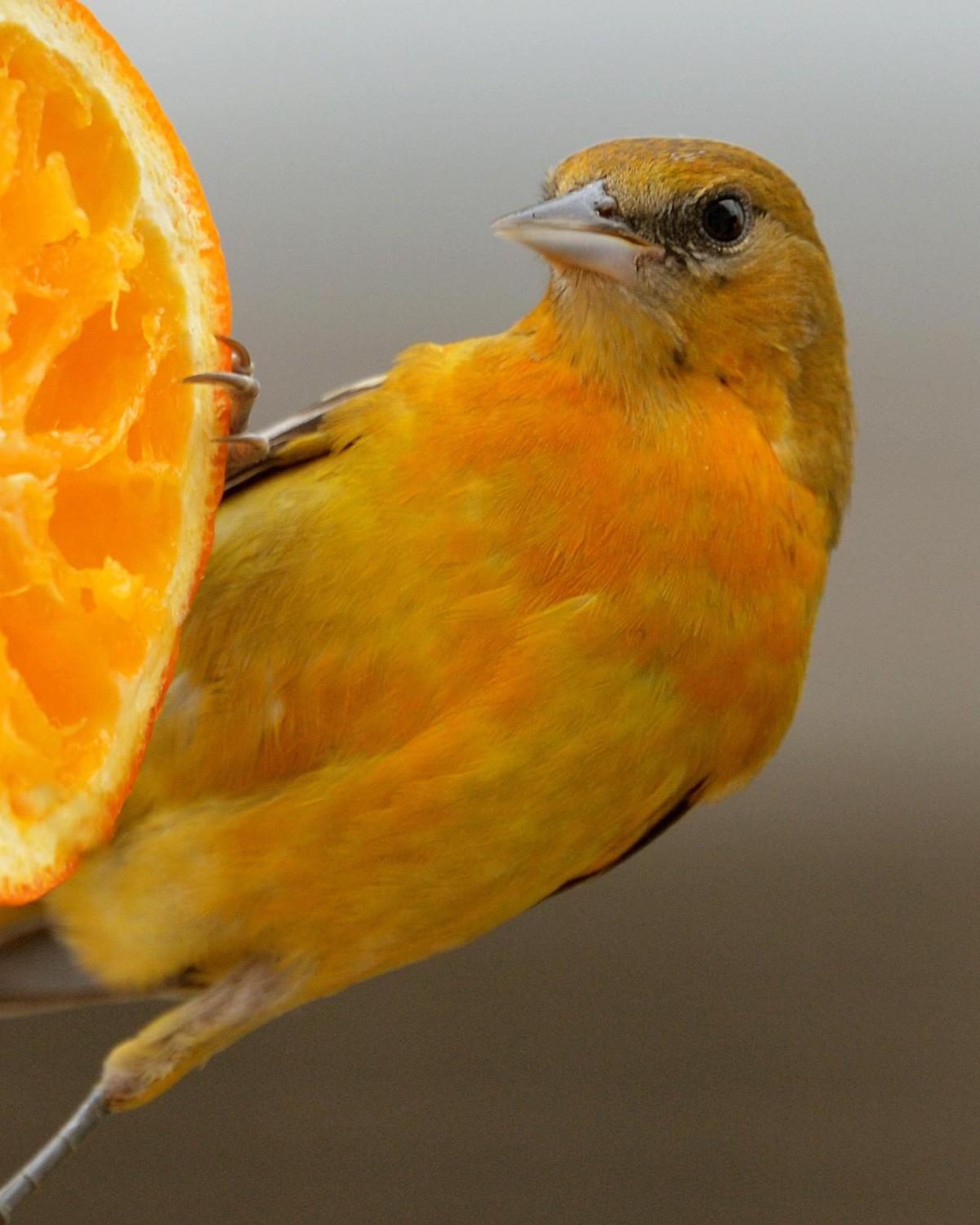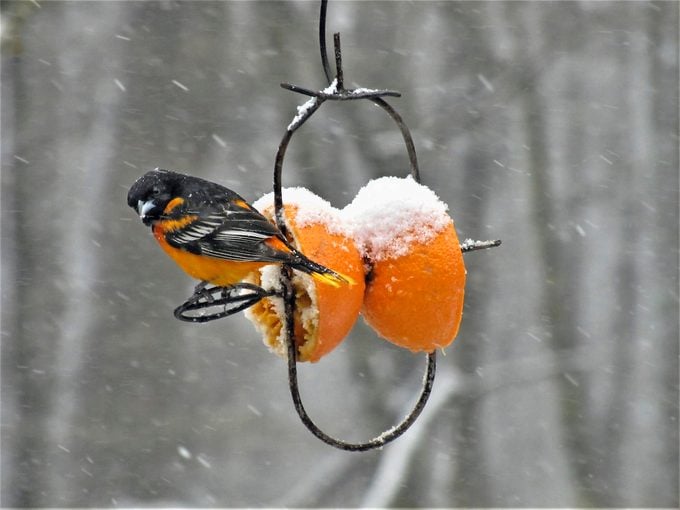Baltimore Oriole Migration: Do Orioles Migrate?
Updated: Apr. 19, 2022
Learn about Baltimore oriole migration and find out if it is it normal to see a Baltimore oriole visit bird feeders in winter. Our birding experts share the answer.

Do Baltimore Orioles Migrate in Winter?
“A Baltimore oriole visited our yard in November or December for the past three winters. It ate jelly, cut oranges, and seed from a ground feeder. I’m wondering about Baltimore oriole migration habits. Should that bird have been somewhere else?” asks Lori Ann O’Shaughnessy of Marlboro, New Jersey.
Yes, you’re right, most Baltimore orioles do migrate to the tropics—or at least to the subtropical edges of the southern United States—for the winter. But during the last couple of decades, increasing numbers have been staying through the winter in the states east of the Appalachians, from Georgia north to New England. The abundance of bird feeders in the region seems to have made the difference. In some Eastern states, people keep their oriole feeders up and filled with grape jelly and oranges to attract them. Apparently Baltimore orioles can survive cold winters as long as they find enough food.
Learn how to attract orioles to your backyard.

“Last December I saw a Baltimore oriole at my feeders. Is that normal?” Ronald Boucher of Rochester, Massachusetts, asks.
At one time, the answer would have been a flat no, because this oriole species usually flew to tropical or subtropical regions in fall. But in recent years, more and more Baltimore orioles have been spending the winter at feeders in the eastern states. Most of them are south of your area—many winter in the Carolinas, for example—but now some survive the season as far north as Massachusetts almost every winter. A few have been noticed even farther north, in Maine or parts of southern Canada. So your December visitor is rare, but not unprecedented.
If you’re looking for a Baltimore oriole in migration season or other times in the year, consider their favorite habitats. These birds prefer edges of deciduous forests, open grovers and parks and towns with lots of shade trees.




















